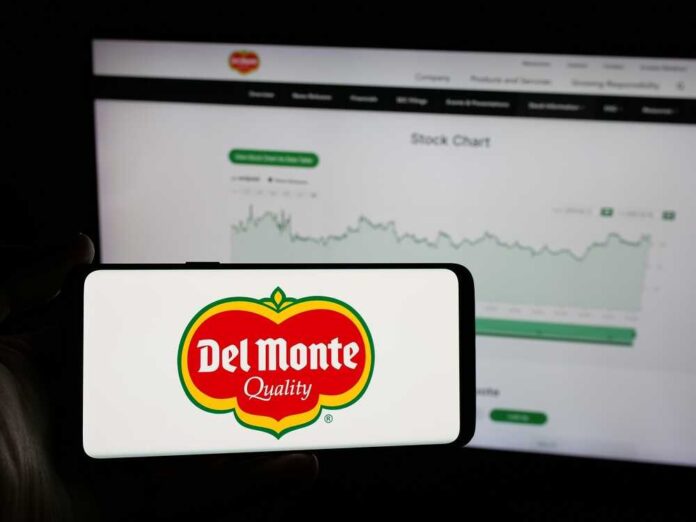
In a bombshell announcement, the 139-year-old Del Monte Foods, a household name for canned fruits and vegetables, has filed for Chapter 11 bankruptcy.
This iconic brand joins the growing list of American companies buckling under economic pressures in today’s America, leaving thousands of workers facing an uncertain future.
The company, with estimated assets and liabilities between $1 billion and $10 billion, has entered into a restructuring support agreement with a group of lenders while it seeks a buyer for its operations.
CEO Greg Longstreet attempted to put a positive spin on the bankruptcy, framing it as a deliberate business decision rather than a failure of the company’s business model.
This is amid changing consumer preferences and economic challenges.
Longstreet said in a statement:
“This is a strategic step forward for Del Monte Foods. After a thorough evaluation of all available options, we determined a court-supervised sale process is the most effective way to accelerate our turnaround and create a stronger and enduring Del Monte Foods.”
The company has secured $912.5 million in financing from existing lenders to maintain operations during the bankruptcy proceedings.
Del Monte Foods assures customers, employees, and vendors that all U.S. facilities will remain open and operational throughout the process, while non-U.S. subsidiaries are not included in the Chapter 11 proceedings.
This struggle reflects broader challenges in the American economy, where decades-old companies are fighting to survive.
Likewise, it becomes the fourth company in the food and beverage sector to file for Chapter 11 recently, highlighting the industry-wide pressures that have intensified under current economic conditions.
The bankruptcy affects between 10,000 and 25,000 creditors, according to court filings.
The company plans to sell “all or substantially all” of its assets to the highest bidder, leaving many wondering what will remain of this American institution when the process concludes.
Consumer preferences have shifted dramatically away from preserved, canned foods toward fresher options, dealing a severe blow to Del Monte’s core business model.
At the same time, the company had already been implementing layoffs and downsizing efforts prior to the bankruptcy filing and began a debt overhaul last year in an attempt to stabilize its finances.
The sale process will focus on securing the “highest or best offer” for the company’s assets.
However, what this means for the future of the Del Monte brand, its products, and its workforce remains uncertain as another piece of America’s manufacturing heritage faces potential dismantling.



















